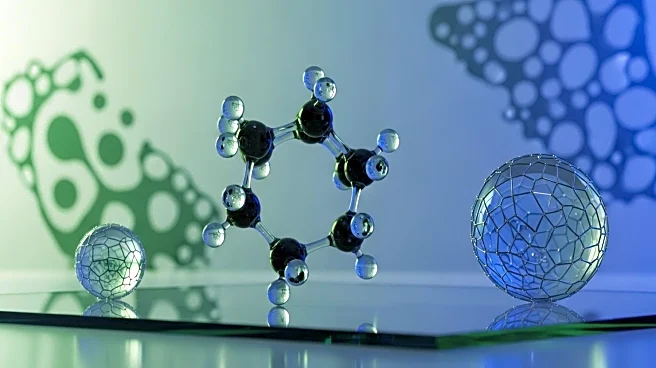What's Happening?
Braskem, a leader in biopolymer production, unveiled new bio-based and circular product solutions at K 2025, a major trade fair for plastics and rubber in Düsseldorf, Germany. The company showcased innovations aimed at accelerating the transformation of the plastics industry towards sustainability. Key products include bio-based polyethylene films, low-density polyethylene for healthcare applications, and high-density polyethylene for hygiene products. These products are designed to enhance recyclability and reduce carbon footprints, aligning with Braskem's commitment to the circular economy.
Why It's Important?
Braskem's new product launches represent a significant step towards sustainable practices in the plastics industry. By introducing bio-based materials that offer environmental benefits without compromising performance, Braskem is setting a benchmark for industry innovation. These developments are crucial for reducing plastic waste and carbon emissions, supporting global efforts to combat climate change. The company's focus on sustainability is likely to influence other industry players to adopt similar practices, driving broader change across the sector.
What's Next?
Braskem's participation in K 2025 highlights its strategic partnerships with machine manufacturers to demonstrate the practical application of its bio-based materials. These collaborations are expected to enhance the integration of sustainable polymers in various transformation processes, promoting efficiency and innovation. As Braskem continues to expand its sustainable portfolio, the company is poised to play a key role in shaping the future of the plastics industry.
Beyond the Headlines
Braskem's innovations underscore the growing importance of bio-based materials in achieving a circular economy. The company's efforts to integrate sustainability into everyday products reflect a broader trend towards environmentally conscious consumerism. As demand for sustainable solutions increases, companies like Braskem are likely to drive significant shifts in production and consumption patterns, contributing to long-term environmental benefits.









